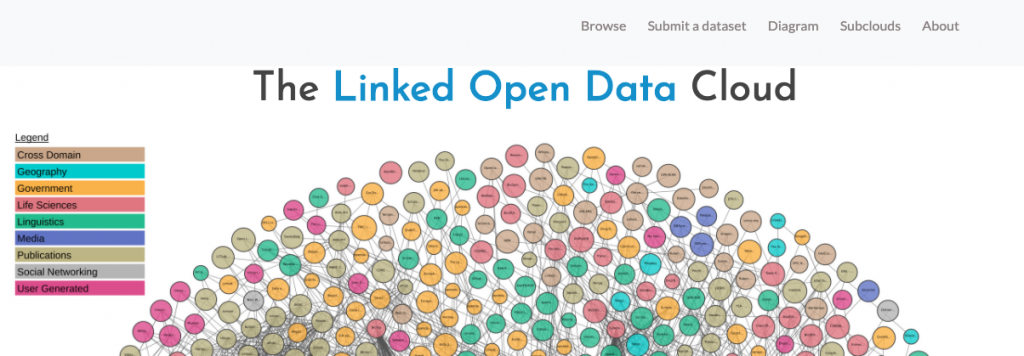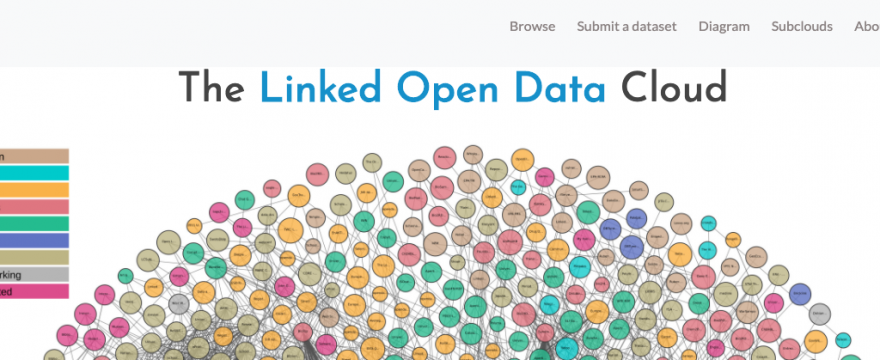Global knowledge graphs
Famous people, well-known books they wrote, their companies and how those things relate are mapped into the larger context of all the life things.
Think mapping how things in Wikipedia relate. And if it’s on Wikipedia, it’s probably in Google’s Knowledge Graph.
If you Google someone and see a knowledge panel on the right-hand side of the search result, that data is pulled from Google’s Knowledge Graph. If you’d like to search Google’s KG and see if something exists, here is a tool that lets you.
Facebook’s Open Graph is also considered global. It maps places, orgs, people, likes, hobbies, articles, etc., and how they related.
In jargon, these are called domain-independent or cross-domain knowledge graphs. There is also a neat visualization of a project called Linked Open Data (LOD), a graph of knowledge graph datasets:

Enterprise knowledge graphs
This is mapping of entities and relationships as they related to an organization, its people, projects, invoices, documents, job descriptions, partnerships, etc.
Use cases include things like creating knowledge bases, removing silos between departments, looking for partnership opportunities.
May also be connected to a global knowledge graph.
Domain specific knowledge graphs
Most knowledge graphs are domain specific. Like UMLS which attempts to map medical terms for better sharing of patient data. They exist for a purpose, they may be “connected”
Personal knowledge graphs
In this recent position paper on personal knowledge graphs, the authors posit that personal knowledge graphs require three things:
- things in it are “of personal interest”, eg. related to the user
- “spiderweb” shape with user at center
- overlaps with larger knowledge graphs
If you have a chandelier, Google KG knows what that is, it may know the model of chandelier you have, but doesn’t know that you have the chandelier.
So if you use a digital assistant to, say, “buy more lightbulbs for my chandelier,” they aren’t good at that yet, because your personal knowledge graph isn’t yet well represented.
To me this idea of a “personal knowledge graph” is basically just rebranding and restructuring data associated with user profiles – a “user graph.”
If Google gets to use the term “personal” to mean specific to a person (user), then we need a term for the type of knowledge graphs I want to design, ones that signal its “private”, “yours,” or something else that respects your data, that you get to leverage.
Owned knowledge graph
This is a concept I’m working on. It’s the idea that you personally should have a knowledge graph, that you own, control, and benefit from.

Articles referencing this one